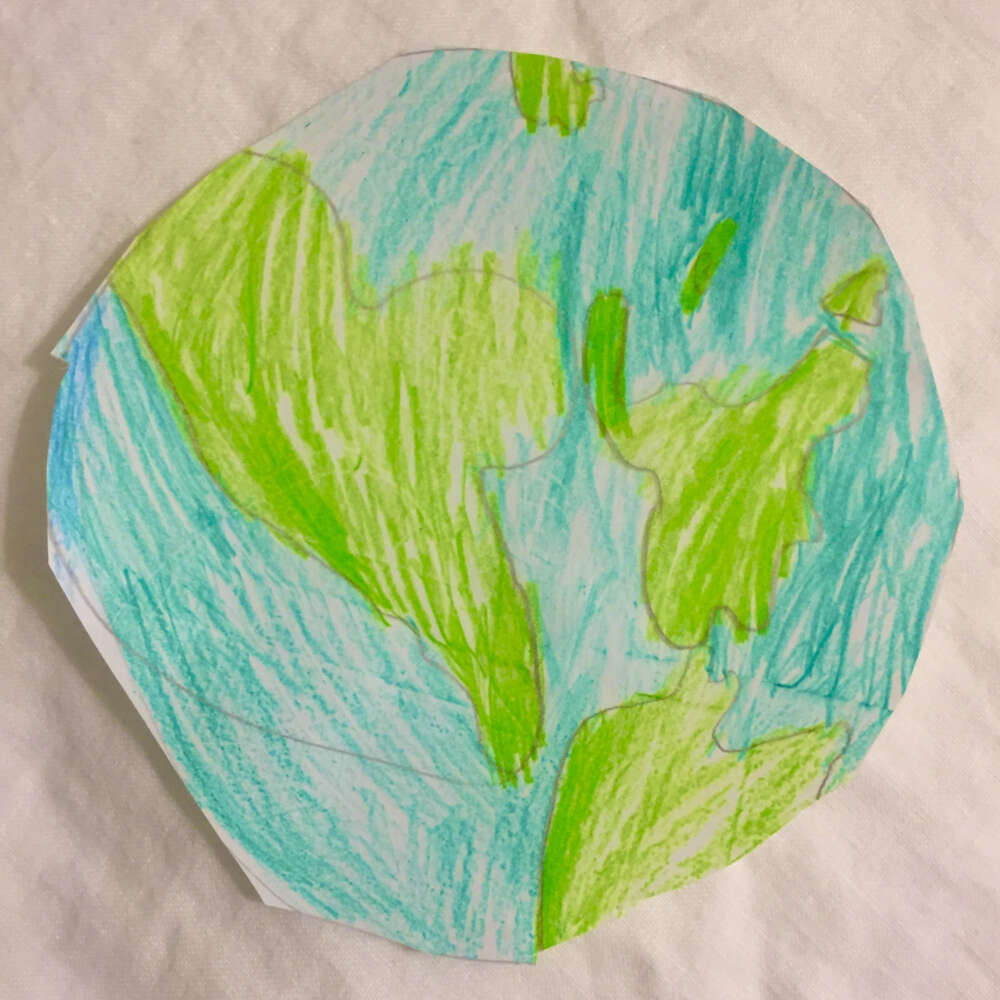By Julia Grieves.

In the wake of COP26 and widespread critique around the extent of its latest pledges, many Australians join others around the world in feeling increasingly disturbed by alarming predictions of future climate crisis.
Climate grief, also known as ecological grief, has been defined as the grief felt in relation to experienced or anticipated ecological losses, including the loss of species, ecosystems, and meaningful landscapes due to acute or chronic environmental change. It is a phenomenon being increasingly reported across the globe and leaders in fields from psychology to climate science, art to philosophy have been attempting to find appropriate means of articulating this distinct and growing experience of grief, as well as navigating how to respond.
Sarah* first encountered ecological grief around six years ago, despite not having a term for it at the time. “It sort of started quite suddenly, not long after the birth of my first child,” Sarah shares. “Initially it was just a low grade sadness in the background that would occasionally rise to the surface and hit me like a tonne of bricks. It would often happen when something popped up on Facebook or the news around just how bad things are, or sometimes more randomly being out in nature.
“The whole polar bear thing has been such a cliche but it just really got to me.”
“One time we were watching TV and a documentary came on about polar bears starving to death in the arctic due to ice loss. The whole polar bear thing has been such a cliché but it just really got me. In that moment I felt so overwhelmed by what was happening, by what we were doing, by how powerless I felt. I was just sort of stuck in that space for a number of weeks. It was so consuming and yet at the same time I had no idea what it was or what to do with it”
Like other forms of grief, ecological grief can present in many ways. “For some it presents more as a denial”, Sarah explains, “just blocking, usually unconsciously… the mind refusing to really absorb the facts, which is quite a natural and even understandable protective mechanism for something that is so threatening to us all”. “For others it might manifest as anxiety, around what will happen, about just how bad it will get, about just how much will be lost… Ecological grief is interesting in that it is often experienced as an anticipatory grief- people report a pervading sense of either fear or despair over future impending losses already set in motion.”
While ecological grief is distinct, there are a number of parallels with the fear of mortality so ubiquitous to the human experience.
While ecological grief is distinct, there are a number of parallels with the fear of mortality so ubiquitous to the human experience.
While ecological grief is distinct, there are a number of parallels with the fear of mortality so ubiquitous to the human experience. As Sarah comments, “in a way they have similar contours, except that with this we’re trying to make sense of loss and death on a much larger scale. And we are also coming to terms with our own culpability amongst all of it. It’s a big one for humans to even begin to digest.”
Sarah is grateful that conversation around ecological grief is becoming more widespread, and that people’s experiences are being validated and given space, with a view towards helping people find tools for managing despair.
“When I was at that point of feeling pretty overwhelmed, a friend of mine suggested I join her at a three day workshop called ‘The Work that Reconnects’. I had no idea what it was but it ended up being incredibly transformative.
The Work that Reconnects (TWTR) is group process and ritual work around honouring grief, tapping into our connection to the web of life and transforming our pain and overwhelm into inspired collective action. One of the most central parts to it is recognising that our grief for the world is equal to our love for the world; that grief is just an expression of love and something that needs to be honoured and validated, especially in community, in the context of others, human and non-human, because that’s where it all begins.”
Joanna Macy, who created TWTR, has been well known for crafting ritual and group work around planetary grief since the 1970s, yet more recently many other initiatives have sprung up around the globe. “There seems to be a common formula of really giving space and finding expression for the deeply painful feelings, for being witnessed amongst others, and then connecting up your pain with your care– working out what you feel particularly moved by and therefore motivated to act on. And it might be directly related to climate change or not; it’s really more about asking ourselves, what do I really care about in this life? What’s important? What is worth living for?”
Resources to help you
For those struggling with ecological grief and not knowing where to go, Sarah has a few suggestions of initiatives currently happening in Australia worth checking out:
- The Work that Reconnects Network Connect (workthatreconnects.org)
- The Good Grief Network (Personal Resilience and Empowerment in a Chaotic Climate) 10-Step Program Page – Good Grief Network
- Psychology for a Safe Climate Psychology For A Safe Climate
- Wayapa Wuurrk Community Home – Wayapa Wuurrk
“One thing I would say to people is not to feel weird for having strong feelings about what we are doing to the planet. To feel grief over our failure as humans to protect a most basic and essential thing as life on earth is a natural response. It is healthy.”
*Sarah is not her real name.
